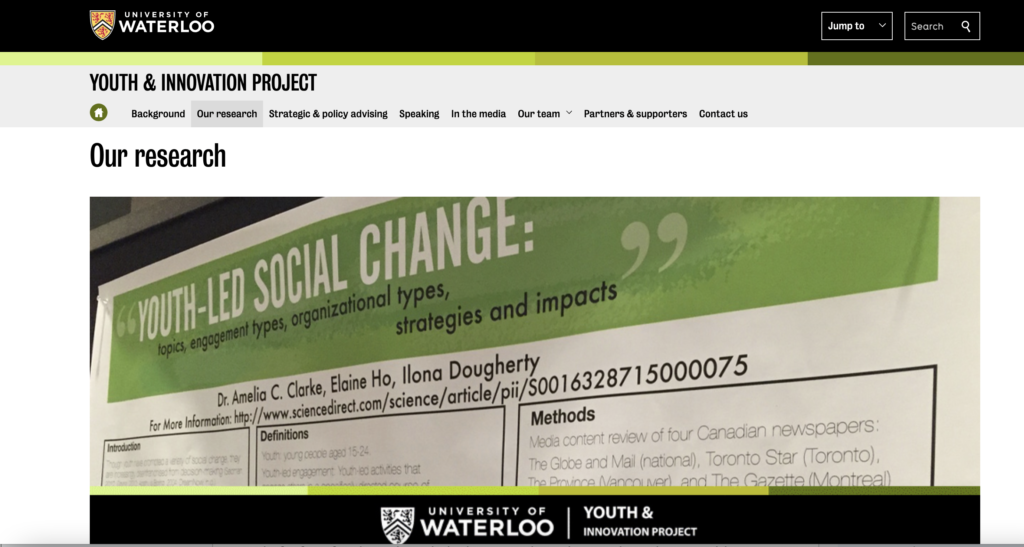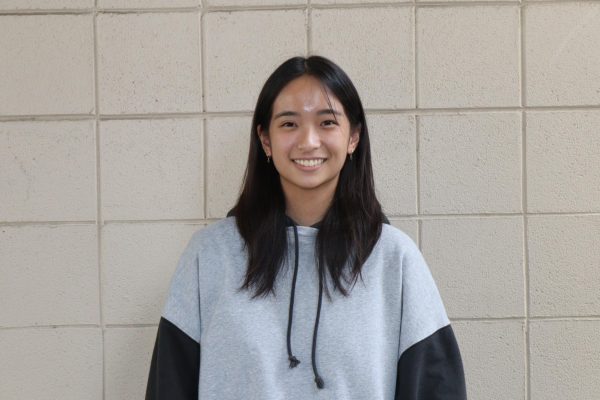On a late evening, sophomore Anushka Tadikonda opened her laptop to organize statistics for The Youth & Innovation Project, a research project about recognizing the strengths of teenage brains — such as creative thinking, observation, curiosity and risk taking — and their potential to find solutions to all kinds of societal problems.
Tadikonda, as part of the project’s seven-member team, has been a research assistant for seven months to format data and statistics and help other members conduct interviews for research.
Run by the University of Waterloo in Canada, the project aims to advise philanthropic foundations on how to increase funding for programs that support youth development and youth leadership.
The team conducts research on the strengths of young people’s minds, synthesizing information from databases and past studies. They particularly focus on highlighting the potential power of youth-led social change. The findings from their research are then published in academic reports and media articles.
“The youth need to be valued on a wider scale,” Tadikonda said. “And we provide research about how to do that, like how the youth function in our society.”
After Tadikonda receives research from the other members, she spends around three hours a week organizing data. Using a citation website, Mendeley, Tadikonda organizes citations by checking for any inaccuracies or duplicates and ensuring that every entry is formatted correctly.
“My work is mostly a lot of correcting data, formatting and citing sources,” Tadikonda said. “It’s mostly menial work as of right now, since there’s no research put in until another company comes along with a specific proposal.”
Besides organizing the research, Tadikonda is also helping Ilona Dougherty, the co-creator and managing director of the Youth & Innovation Project, collect interviews for a book she is publishing about the power of youth leadership.
Tadikonda was initially given the opportunity to volunteer as a research assistant by Dougherty. She first met Dougherty during the summer of 2022 after applying to and attending Amplifying Global Scholar, an international relations summer program where Dougherty was a guest speaker. Tadikonda stayed in contact with Dougherty through email after the program ended.
Besides Dougherty, there are five adult members in the Youth & Innovation Project: principal investigator and professor Amelia Clarke, program coordinator Valentina Cifuentes, administrative assistant Mariah Jolin and research assistants Leah Feor and Odeeth Lara-Morales.
Currently, the members are advising eight companies — the Royal Bank of Canada, Canadian Wildlife Federation, Philanthropic Foundations of Canada, Laidlaw Foundation, Lyle S. Hallman Foundation, Pathy Foundation, The Counseling Foundation of Canada and Suncor Energy Foundation — on how to target their funding toward youth programs to better support the younger generation. Youth programs, such as the Youth Action & Environment Pilot Fellowship Class funded by The Lawson Foundation, focus on teaching life skills beyond the standard curriculum of textbooks; they help the youth build social skills, gain independence and develop leadership by participating in advocacy groups for issues like environmental awareness.
After the team receives a proposal from a company, they gather data on how teenagers make strong leaders who can spark societal change — for instance, by analyzing how often youth-led campaigns have appeared in articles from major Canadian newspapers and comparing frequency and societal impact across different categories of political and social issues. Having data to back up their claims about the youth’s strengths helps convince companies to invest more in youth programs.
While Tadikonda enjoys the process of organizing data on her own and sharing the work, she faces frequent difficulties. Since the project is based in Canada in a different time zone, Tadikonda is unable to attend both in-person and online meetings because of conflicts with school hours.
“I’ve only met two of the members,” Tadikonda said. “Not being able to talk to the members mostly impacts how much I know about what’s happening. It’s difficult to be involved in the entire project because it’s very big in terms of how much we do. I end up knowing what other members are doing once their work is published.”
Although Tadikonda has worked on the Youth & Innovation Project for only about a year, she has found a passion to continue helping companies with research.
“I definitely see myself [advising companies] in the future, depending on where I go to college and what opportunities they have then,” Tadikonda said. “For now, I’m hoping to get my name published on some of the works, especially the ones for the Canadian government.”




























